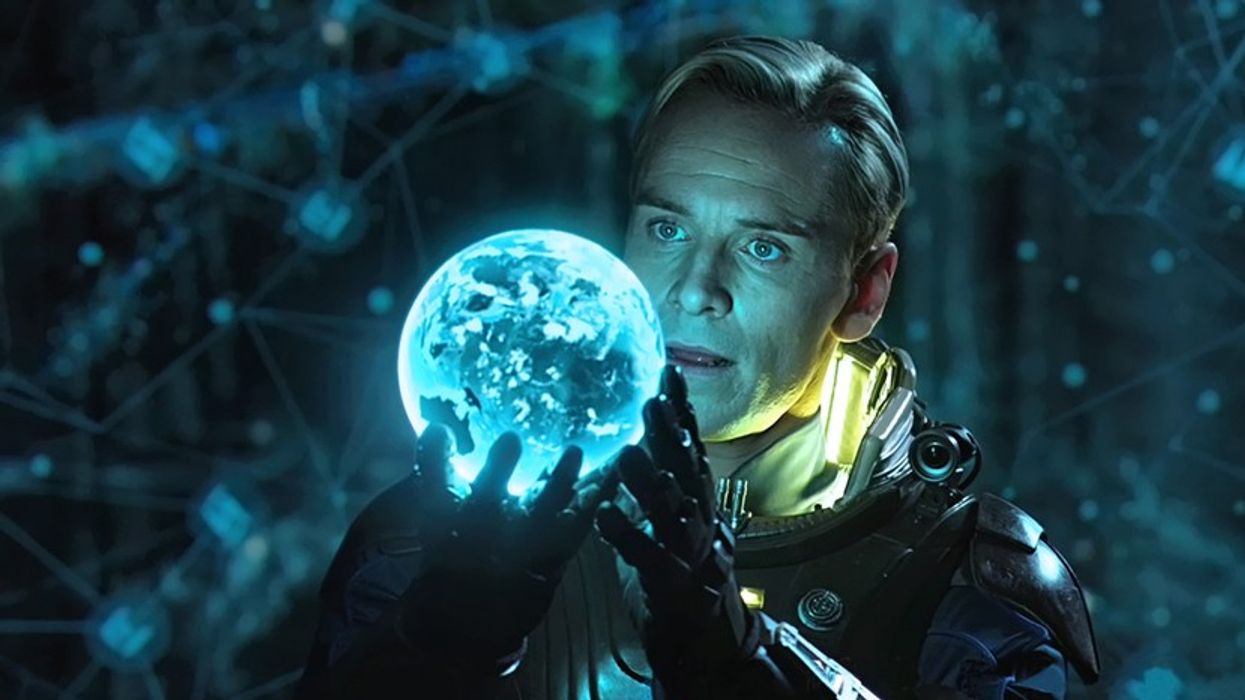Aliens, Spaceships, and Google Earth: a Behind-the-Scenes Look at the VFX of 'Prometheus'

Even if you haven't yet caught one of this past year's most hyped science fiction films, you're probably still somewhat familiar (thanks to nearly inescapable tv spots) with the stark visual presence found in Ridley Scott's Prometheus (just released on Blu-ray). Scott's no stranger to vividly-realized landscapes, and after a brief (ahem, 30 year) hiatus from the realm of sci-fi, he's once again brought us that flavor of striking imagery -- but not without the help of some seriously special effects teams.
Below is some behind-the-scenes material with Richard Stammers, whose job was so extensive he's received a screen credit I've never seen before: "Overall VFX Supervisor." The clip is a thorough seven minute tour of the film's primary setting (potential spoilers in all these videos):
I find it very interesting that the team used Google Earth not only as a pre-vis tool, but also as the most significant reference point for modeling the canyon in which much of the film took place. This type of virtualization is what cinema has always done in a sense, which is to draw inspiration for fantastic settings from the real-life scenery around us, and depict it as a heightened reconstruction. True, there's also nothing new about digitizing reality and then re-synthesizing it to create new worlds in visual effects -- but something about topographically recreating an entire canyon range and reconstituting it at will -- that's hybridization on a staggering scale.
As is often the case on super-scale sci-fi epics such as Prometheus, multiple visual effects houses were employed. Weta Digital of Lord of the Rings fame was among them, likely aided by the company's unique experience with virtual characters -- particularly the monstrous kind. The VFX house helped create the seminal moment of the film's first act (I refuse to apologize for intending that pun) in which a humanoid alien being seeds his DNA upon prehistoric Earth.
Our next video is over 30 minutes long, but it's a much more extensive account of each of the major VFX house's contributions. If you want the full-disclosure take on the subject, this is surely it:
Clearly all this brain-power (not to mention processing power) on one project yields serious results. I know more than a few people who were fairly disappointed with Prometheus overall, but I don't think anyone was questioning the quality of the visual effects.
I've heard some criticisms that this film relied too much on effects, even if said effects were very convincing. VFX can certainly cover up green screens, skin blemishes, boom mics, wiring, unwanted background elements... the list goes on and on. But can VFX cover up plot holes? What did you think of the film, did you enjoy it because of -- or despite -- the story?











